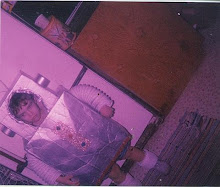YouTube can offer up some real gems sometimes. I’ve been watching various Van Morrison videos, my favorites of which feature him performing on some German (?) TV show called Musikladen. They’re some fantastic performances, especially his awe-inspiring version of “Into The Mystic.” There are also, if you look around, some beautiful, epic versions of “Cyprus Avenue” and “Ballerina” from the early 70s. They’re incredible and moving in all the ways we’ve come to expect from Morrison.
This Van Morrison oversaturation led me to consider the video above, which is a clip from the 1995 film Georgia, which stars Jennifer Jason Leigh as a strung-out, no-talent wannabe singer who has a tumultuous relationship with her famous folksinger sister. I haven’t seen the movie in many years, but seeing it when I was fourteen or so was a major event: the soundtrack features songs by Elvis Costello and The Velvet Underground, artists I was only beginning to listen to, as well as a supporting performance by John Doe of X, a band I discovered because of this movie, and loved, and of course there is Jennifer Jason Leigh’s long, painful, terrible version of Van Morrison’s “Take Me Back.”
The thing that’s most frustrating about Van Morrison is that, because he’s an artist of such transcendent power and talent, he quite often—more often than not, I’d say—fails to live up to that transcendence; for every breathtaking, almost supernaturally beautiful song in his catalog, there are ten than fall flat, or are merely pretty, or just sort of boring, or outright bad. “Take Me Back” is a perfect example. When I saw Georgia and heard Leigh’s version, I heard something that, crippled as it was, was straining to take flight, a yearning so great that it could lift even a singer as poor as her and set her beyond herself. Leigh’s version of the song is agonizing, but so human, so empathetic, so unafraid, it becomes something much bigger.
And then, years and years later, when I heard Morrison’s version, from his Hymns To The Silence album, I heard what I so often hear from him: a nice little song, one that, with its talk of walkin’ by the water and thinkin’ ‘bout all the trouble and confusion in the world, its labored repetitions of the title phrase, its pleas to “let me understand religion,” its green fields in the summertime, didn’t speak of transcendence, but was rather content to indulge in any number of forced “mystical” clichés. Rather than a singer being so entranced by the song he has created he disappears into it, I heard a pretty decent approximation of that release, one that is completely obliterated by Leigh’s ragged, highwire version.
And it’s not like I really blame Morrison for this; unlike almost any other artist I can think of, his best work truly seems to come from a place that is beyond him. I generally find that whole notion of an artist as a kind of divine antennae, picking up Mysterious Signals From Beyond, to be bullshit…but the disparity between his best work and his more common efforts almost causes me to bend enough to put at least some creedence into the thought. Or perhaps, more likely, the kind of intensity required for such moving work is just too much for any kind of sustained effort. In Lester Bangs’ peerless review—and “review” is really too small a word for what Bangs does; his essay is almost as beautiful as the album itself—of Astral Weeks, he writes
“no wonder…that Van Morrison never came this close to looking life square in the face again, no wonder he turned to Tupelo Honey and even Hard Nose the Highway with its entire side of songs about falling leaves. In Astral Weeks…he confronted enough for any man’s lifetime. Of course, having been offered this immeasurably stirring and equally frightening gift from Morrison, one can hardly be blamed for not caring terribly much about Old, Old Woodstock and [other] little homilies…”
And one can hardly blame Morrison for, having reached the peak in his art any number of times, finally backing away.



